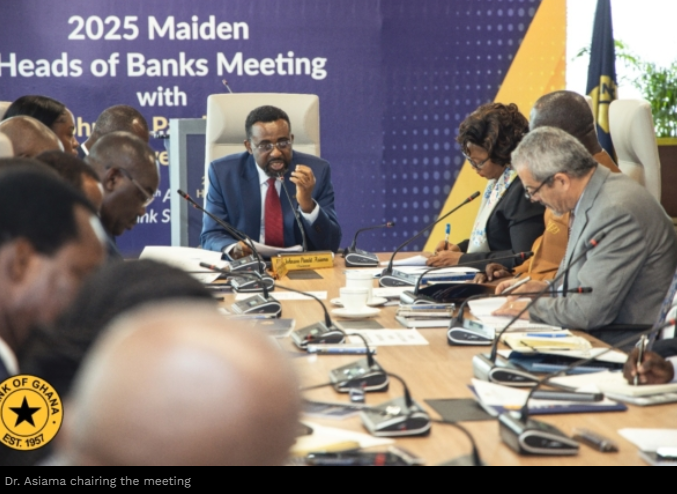The Bank of Ghana Governor, Dr. Johnson Asiama, has revealed that Ghana’s trade surplus rose to $6.2 billion during the first eight months of 2025, driven by strong gold exports and higher cocoa receipts.
Dr. Asiama made the disclosure while opening the 126th Monetary Policy Committee meeting on Monday, September 15, 2025. He also noted that despite seasonal pressures on the cedi and a moderation in remittance inflows in recent weeks, the country’s International Gross Reserves stood at $10.7 billion in August, covering roughly 4½ months of imports.
On the cedi, he stated that the local currency remains among the strongest globally year-to-date, appreciating by about 21% as of September 12. “It now ranks alongside high performers such as the Russian ruble, Swedish krona, Norwegian krone, Swiss franc, Euro, and British pound. This outperformance reflects prudent monetary policy, effective liquidity management, fiscal consolidation, and increased foreign-exchange inflows,” he added.
Banking Sector Development
Dr. Asiama assured that the banking sector remains stable and improving, with the capital adequacy ratio (without reliefs) rising to 19.5% in July 2025. While non-performing loans (NPLs) remain elevated at 21.7%, they drop to 8.4% when fully provisioned losses are excluded, highlighting resilience amid ongoing recapitalisation and strict underwriting.
On fiscal performance, he noted: “Execution in the first half of 2025 signalled consolidation: the deficit on a commitment basis was contained at 0.7% of GDP, below target, contributing, together with cedi strength and external restructuring, to a decline in the public debt ratio by mid-year.”
Regarding monetary policy, Dr. Asiama said the committee is ready to adjust rates as the disinflation process continues and risks, including global trade disruptions or prospective utility tariff adjustments, are assessed. He added that the tight monetary stance and fiscal consolidation helped headline inflation fall to 11.5% in August 2025.
Source: Joy Business



